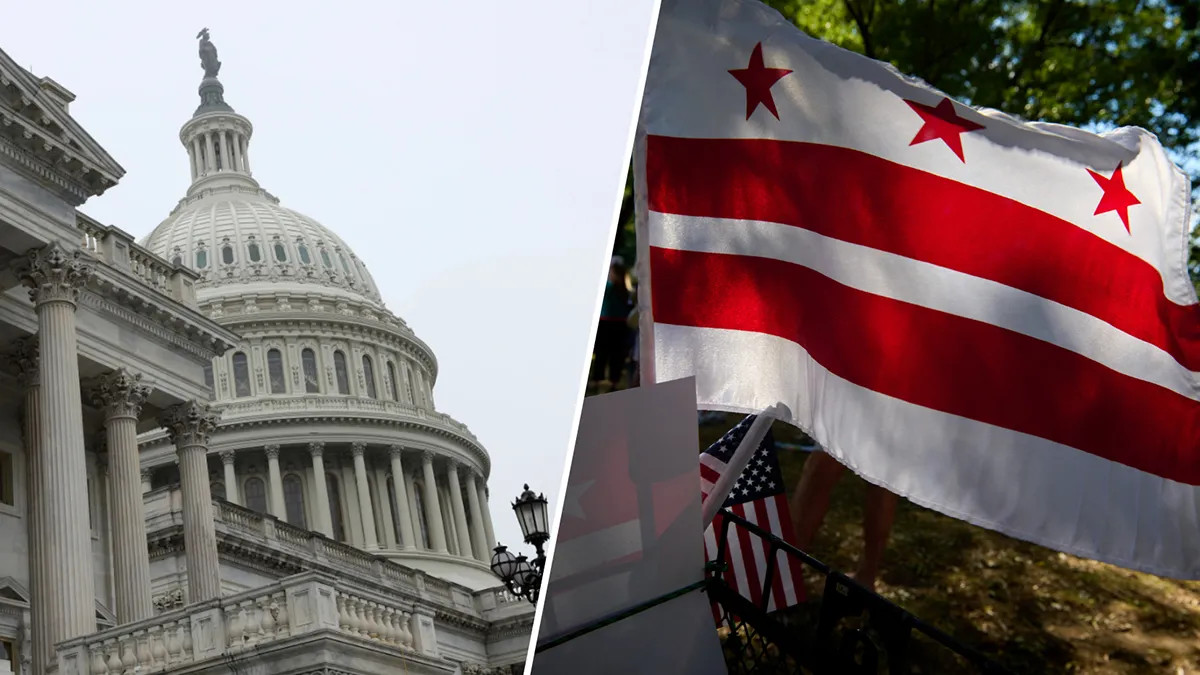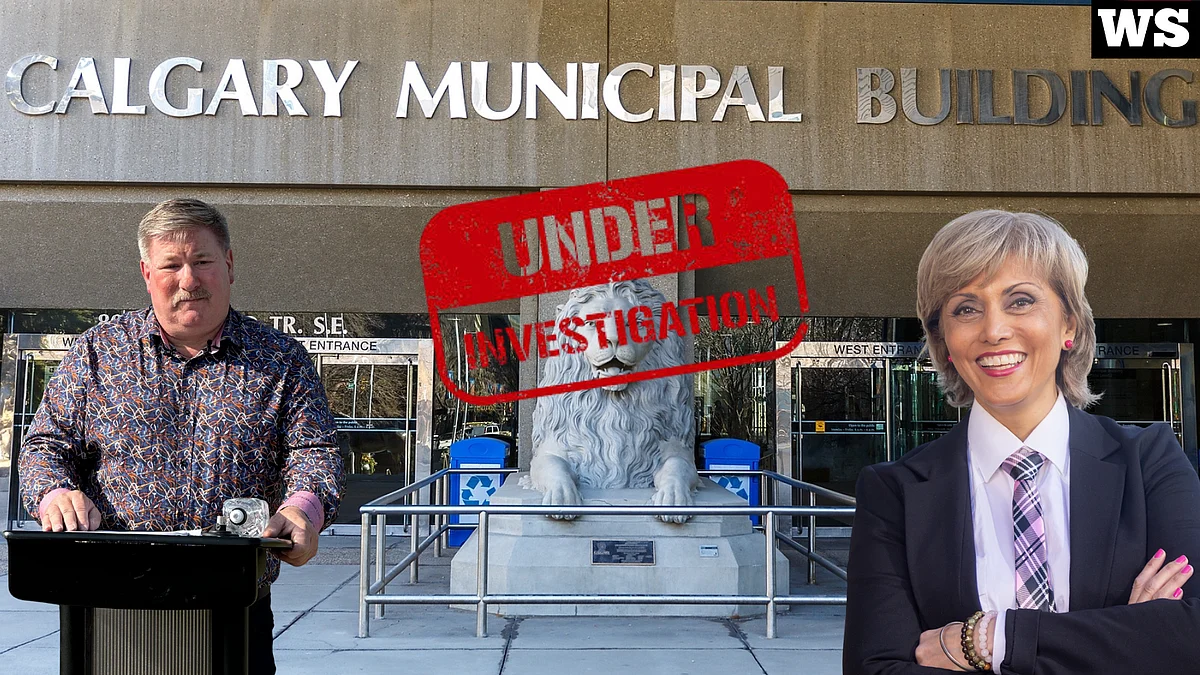By Andrea Swalec
Copyright nbcwashington

Members of the powerful House Oversight Committee will consider 13 proposed bills that could seize more federal control over D.C.
The proposals under consideration starting Wednesday would create sweeping changes in D.C. affecting policing, juvenile justice, the court system, education funding, the treatment of people experiencing homelessness and more.
“All of them would be an affront to home rule. We believe that our laws affecting the District should be made by the District,” Mayor Muriel Bowser said Monday.
Here’s what to know about each bill, according to summaries published by the House Oversight Committee:
District of Columbia Attorney General Appointment Reform Act
This would end the term of D.C.’s elected attorney general and make the position appointed by the president, not elected by voters. This was introduced by Rep. Pat Fallon, a Texas Republican.
District of Columbia Policing Protection Act
This would allow police chases if an officer or supervisor says it’s necessary, effective and will not endanger innocent people. It also would require “evaluation reports of current D.C. police tactics” to be submitted to Congress. This was introduced by Rep. Clay Higgins, a Louisiana Republican.
District of Columbia Judicial Nominations Reform Act
This would repeal the D.C. Judicial Nomination Commission and make nominations for D.C. courts an action of the president. This was introduced by Rep. Pete Sessions, a Texas Republican.
Clean and Managed Public Spaces Act
This would impose a fine of not more than $500 or imprisonment for not more than 30 days, or both, as a penalty for “camping outdoors on public property,” meaning it will apply to homeless people. This was introduced by Rep. William Timmons, a South Carolina Republican.
District of Columbia Cash Bail Reform Act
This would end cashless bail and require mandatory pretrial detention for people charged with violent crimes. This was introduced by Rep. Elise Stefanik, a New York Republican.
Unnamed bill
This would repeal D.C.’s Incarceration Reduction Amendment Act and the Second Chance Amendment Act. This would block people convicted of certain serious crimes committed before their 18th birthdays to petition the court for a sentence reduction after serving at least 15 years. This also would limit people from having some conviction records, including for marijuana possession, expunged or sealed. It wasn’t immediately clear who introduced this.
District of Columbia Juvenile Sentencing Reform Act
This would “lower the age of eligibility for juveniles to be tried as adults in D.C. for certain violent offenses committed after the date of enactment from 16 years to 14 years of age.” This was introduced by Rep. Brandon Gill, a Texas Republican.
Make the District of Columbia Safe and Beautiful Act
This would require the development and implementation of a program under the Secretary of the Interior to beautify D.C. through graffiti removal and the restoration of federal public monuments. This was introduced by Rep. John McGuire, a Virginia Republican.
Common-Sense Law Enforcement and Accountability Now in D.C. (CLEAN DC) Act
This would repeal D.C.’s 2022 police reform bill and affects when officers can view body camera footage while writing initial incident reports, collective bargaining by the police union over disciplinary matters, “requiring a jury to consider if an officer consulted with mental health, behavioral health, or social workers before the use of deadly force, and imposing approval hurdles for the use of riot gear and less-lethal projectiles.” This was introduced by Rep. Andrew Clyde, a Georgia Republican.
Strong Sentences for Safer D.C. Streets Act
This would change the mandatory minimum sentencing guidelines in D.C. law “commensurate to other nationwide standards for criminal sentencing,” including for murder, rape and carjacking. This was introduced by Rep. Andy Biggs, an Arizona Republican.
DC Criminal Reforms to Immediately Make Everyone Safer (DC CRIMES) Act
This would change the definition of “youth” from under 25 to under 18, resulting in people 18 and older being tried as adults in the criminal justice system. It would remove the ability of judges to sentence youth offenders below the mandatory minimum and bar D.C. from “enacting any changes to the existing minimum sentencing laws.” This was introduced by Rep. Byron Donalds, a Florida Republican.
Scholarships for Opportunity and Results (SOAR) Act Improvements Act
This would change how $60 million in annual funds are allocated for low-income children to receive scholarships to attend private schools. The change would direct more funds to the scholarship program and less to D.C. Public Schools. It also would require reporting on academic progress and school safety. This was introduced by Rep. Virginia Foxx, a North Carolina Republican.
Unnamed bill
This would prohibit the D.C. Council from withdrawing legislation from congressional review and create a 60-day congressional review period for all D.C. legislation. This was introduced by Rep. Paul Gosar, an Arizona Republican.
What’s the likelihood these bills will become laws?
As Republicans control the House, Senate and White House, could these bills become law? They are expected to pass the House. But in the Senate, where Republicans have a slimmer margin, it would take seven Democrats to join with Republicans to break a filibuster, so that’s a tougher threshold to reach.
A few years ago, that would seem unlikely. But these days, D.C. can’t rely on congressional Democrats like they used to. Even before President Donald Trump took office, President Joe Biden and congressional Democrats joined Republicans to overturn D.C.’s crime bill, so leaders and residents need to be concerned.
What else should DC residents pay attention to?
These bills aren’t the only threat to D.C. Later this week, the D.C. Council will send the 2026 budget — which includes the funding for the new RFK football stadium — to Capitol Hill for congressional review. That will be an opportunity for Republicans to add riders to that bill, as they have done in the past.
Then, there’s the threat of another continuing resolution at the end of the month. The most recent continuing resolution took hundreds of millions of dollars out of the D.C. budget. The White House sent to Congress a list of items, including restoring to D.C. its ability to spend local funds should a CR be passed, Punchbowl News reported Tuesday evening.
There’s a lot to watch as Congress returns to work, and that doesn’t include anything else Trump might choose to do in D.C.
News4’s Mark Segraves contributed to this report.
Get the D.C. area’s top news and weather delivered to your inbox every morning. Sign up for First & 4Most, our free newsletter.



